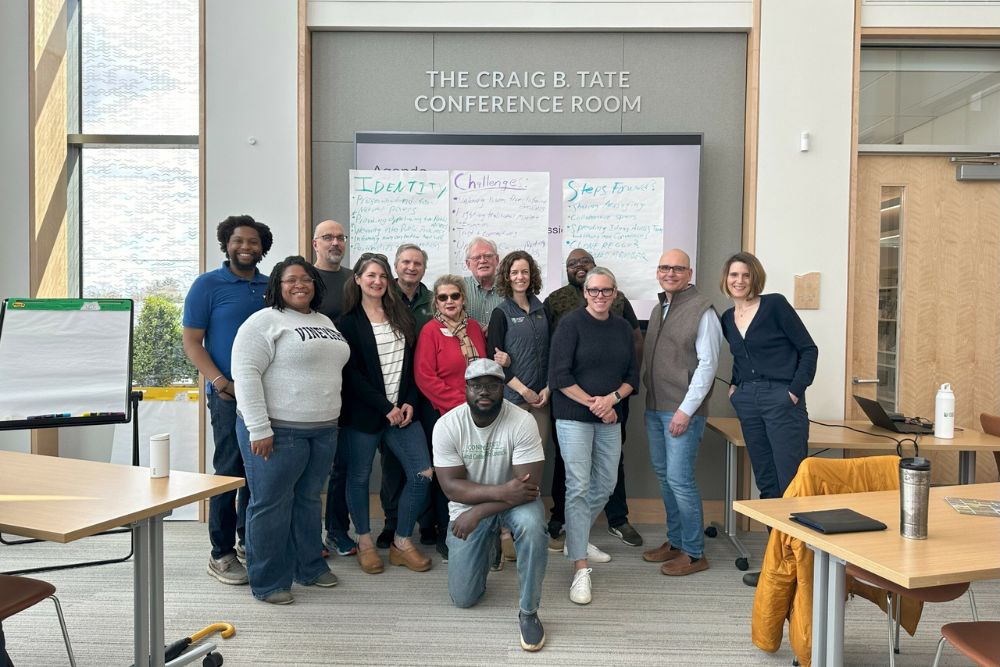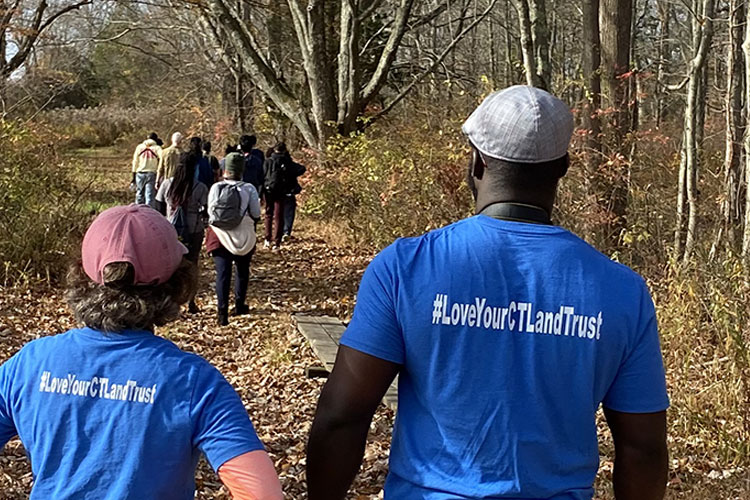News

At the beginning of April, land trust board representatives from lower Fairfield County gathered at the recently redeveloped New Canaan Library in New Canaan, Connecticut for a CLCC-facilitated workshop. Representatives from the Aspectuck Land Trust, Darien Land Trust, New Canaan Land Trust, and Norwalk Land Trust were in attendance.
Land trusts in this region are in an interesting position, being primarily focused on preserving and protecting open space in perpetuity. However, lower Fairfield County is a region that is prone to very high land costs and very high levels of development. So opportunities for acquisitions are sparse. We saw a need for a private discussion between individuals in the region to better understand the challenges they are going through and how they can support one another as peers.
Through sponsorship from the New Canaan Community Foundation and the Jeniam Foundation, CLCC was able to host this workshop dedicated to learning and brainstorming to address these challenges and deepen regional impact. The focus of the day was to bring together these land trusts to define conservation in the context of being a conservation organization operating in areas of high development, with limited available open space, and discuss the difficulties and challenges that come with this position.
The day kicked off with a panel of representatives from other land trusts who face similar challenges:
Reggy Saint Fortcolin, of Aspetuck Land Trust, whose work focuses on community programming in Bridgeport.
David Sagers, Traprock Ridge Land Conservancy, a newly merged land conservancy that is currently navigating its identity post-merge as well as defining its priorities in the service area of East Granby, Wintonbury, and West Harford.
Walker Holmes – Trust for Public Land, a national non-profit that routinely enters communities to provide better access to public parks and open space.
Through a discussion facilitated by Community Conservation Coordinator, Jovan Bryan, the panelists described their methods and mindsets that pushed them towards impactful conservation efforts in these areas. Bending the mold of how conservation traditionally operates, these groups talked about focusing on the community impact, developing partnerships, and creating lasting relationships to generate innovative projects and programs, as well as navigating difficulties along the way.
Afterward, the room opened up for all participants to gather their thoughts, share with one another, and decide on the next steps. 
Community Conservation Initiatives such as these create space for camaraderie, shared ideals, and eventually, lasting change. By no means are answers to these topics borne out of one workshop, but it was a great first step. This is why we at CLCC are dedicated to continuing conservations beyond our programming and are working with these land trusts to create more spaces that will allow them to learn from their peers and grow with one another. I am inspired and encouraged by the conversations I had with this group, and others in the future, to deepen land conservation’s impact in our state.
![types] types]](https://ctconservation.org/wp-content/uploads/Jovan-Bryan-Headshot.jpg)
Tags: Collaboration, Networking, Peer-to-Peer

